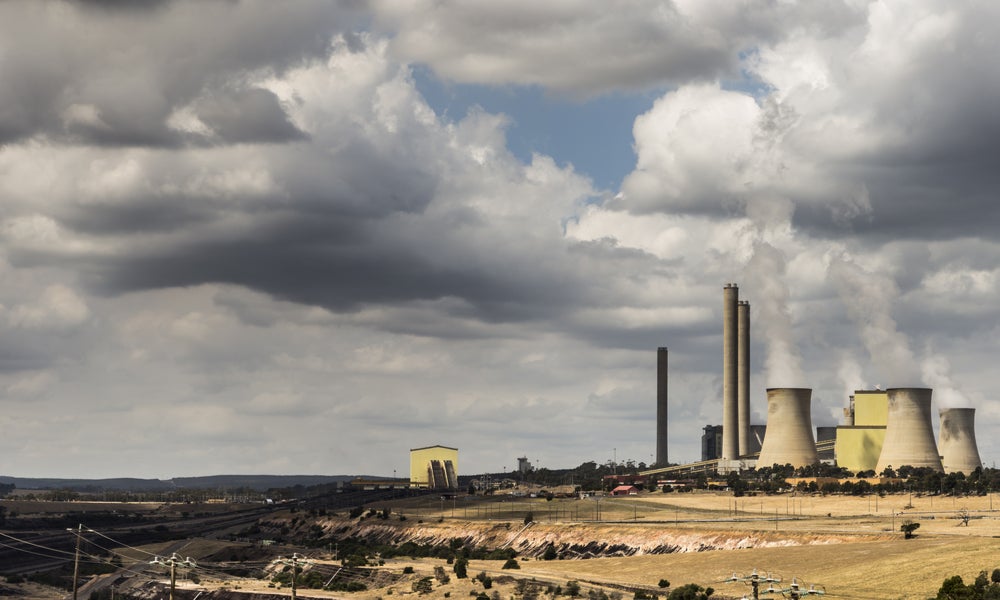Climate change and shareholder activism: what should boards do?
Little research has been done into why shareholder activism is so effective, but a recent study sheds new light on how business can work with advocacy organisations to create positive change
Since 2010, the pool of funds used for shareholder activism campaigns around the world has quadrupled from approximately US$50 billion ($73 billion) to more than US$200 billion ($291 billion). But in Australia, activism demands towards mid-to large-cap ASX companies – companies with a market value greater than $2 billion – are extremely rare, according to ASX data. Indeed, recent figures show that around 80 per cent of public shareholder activist demands in the first half of 2019 (up from approximately 60 per cent in 2018) targeted ASX companies with a market value below $50 million.
One explanation for this difference could be the access to boards that institutional shareholders enjoy in Australia – a privilege supported by shareholder rights such as the annual two strikes say-on-pay vote, or the ability to call a shareholder meeting according to the Corporations Act. While these provide incentives for boards and management to seek engagement with shareholders around grievances to produce meaningful outcomes, there is a concern they also lead investors to prioritise access to boards over anything else.
There are a handful of Australian shareholder advocacy organisations that engage with significant fossil fuel companies about the inconsistency between profit models and a safe path across the areas of environmental, social and governance issues (ESG). But with the window for meaningful action on climate change closing fast, shareholder activism is likely to intensify further. In this landscape, it is essential businesses know how to engage with advocacy organisations properly.
Trying to overcome some of these biases and practises is a challenge, but one that shareholder advocacy organisations like the Australasian Centre for Corporate Responsibility (ACCR) are working hard to achieve. The ACCR is a research and shareholder advocacy organisation currently focusing on improving corporate Australia across all areas of ESG, concerned with how listed companies, industry associations, and investors are managing climate, labour, human rights and governance issues.

How do organisations like the ACCR operate?
Environmental accountability is a core issue for the ACCR, and its climate program aims to accelerate Australia’s transition to a low carbon economy in line with the Paris Agreement. It engages with ASX-listed companies on their climate risk disclosure and the need to set emissions reduction targets which are consistent with the Paris Agreement and pushes for reviews by ASX-listed companies of their industry associations’ climate policy advocacy.
Over recent years, the ACCR has pressured big companies such as AGL, BHP, Commonwealth Bank, Origin Energy and Rio Tinto on ESG issues. Recently, the advocacy organisation gained a majority vote from shareholders at Woodside Petroleum, Australia’s largest operator of oil and gas production in Australia, in favour of setting emission reduction targets aligned with the objectives of the Paris Agreement: 50.16 per cent voted for shareholder resolution on Paris Goals and Targets, and 42.66 per cent voted for a shareholder resolution on climate-related lobbying.
“Woodside has a pathetic record of aligning their business with the Paris Agreement. Their operations and their plans are inconsistent and shareholders, I think, in acknowledgment of that voted in favour of our proposal. So that’s the first time a shareholder proposal of this nature has ever received a majority vote," explains Brynn O’Brien, Executive Director at the ACCR.
The ACCR holds shares in large Australian listed companies and uses these shareholdings to engage with companies about environmental and social risk. “We use the rights that shareholders have to have conversations with companies about those matters, and we’re the only organisation in Australia that covers the full range of environmental, social and governance (ESG) issues,” explains Ms O’Brien.
“The window of tolerance for high emitting activities is rapidly closing. So, our engagements with companies are becoming more urgent”
Brynn O’Brien, Executive Director at the Australasian Centre for Corporate Responsibility (ACCR)
Although institutional investors in the US tend to use these rights fairly frequently themselves, this is less common in Australia, where the work of such organisations like ACCR seems all the more impactful.
But to be successful, the ACCR needs the support of 100 shareholders to use these rights and “finding 100 shareholders in any Australian listed company that want to engage with a company about environmental and social issues is difficult,” says Ms O’Brien.
“There’s also the legal regime in Australia that is relatively unfavourable to shareholder action. So, we can’t just propose shareholder resolutions on the face of the law; we need to propose resolutions to change the company constitution to permit them – it’s a legally complex environment, and it’s not favourable to binding shareholder resolutions,” she continues.
But because companies know that organisations like the ACCR have access to the tool of shareholder resolutions, Ms O’Brien says they usually take engagements very seriously.
Climate change remains the biggest challenge
The ACCR promotes informed shareholder engagement and advocacy for more just and sustainable corporate activity. But of all the issues it faces, Ms O’Brien says climate change is the most urgent.
“Climate change, as a systemic issue, is the biggest threat to everyone and we are not doing enough to lower emissions. We see that as the biggest threat to the financial system and investment sector in particular because of its systemic nature, and so our conversations are about essentially trying to manage the investment sector’s ability to manage risk," says Ms O'Brien.
“The window of tolerance for high-emitting activities is rapidly closing. So, our engagements with companies are becoming more urgent, and we’re seeking more significant changes to their business models,” she adds.

But changing business models of companies is extremely difficult, especially for emissions-intensive companies. “The reality for fossil fuels companies is that the world cannot continue to use their products; their businesses need to fully transition or wind down to meet the objectives of the Paris agreement. That is a huge problem for them and their investors,” says Ms O’Brien.
But there is another systemic issue that Ms O’Brien says is hindering engagement and progress. “There is a bias in the investment sector towards trusting boards of companies and backing them, even when the evidence is that the boards can’t be trusted to transition or to manage an area of risk well. Trying to overcome those biases and that practice is a challenge for us, but we are increasing our ability to do that,” adds Ms O’Brien.
What makes shareholder activism successful?
As part of the goals surrounding sustainable development, several frameworks focused on Corporate Social Responsibility (CSR) have emerged to encourage companies to adopt more stringent CSR management and reporting practices. These included reporting frameworks, such as those designed by the Global Reporting Initiative (GRI) and the International Integrated Reporting Council (IIRC), and management frameworks like UN global compact.
But such frameworks remain voluntary. This is leading a growing movement by civil society – mainly advocacy organisations such as the ACCR – seeking to police the adoption of the principles and practices embedded in these frameworks by companies, says Conor Clune, Senior Lecturer in the School of Accounting at UNSW Business School.
In a recent co-authored paper: Framing Engagement that Resonates: Organising Advocacy for Corporate Social and Environmental Accountability, Dr Clune explores how such organisations can work collaboratively with companies to improve the adoption of these frameworks. The authors explain how organisations primarily use benchmarks to pressure companies to improve reporting and management in this space on topics like supply chain transparency, tax transparency, responsible investment in the pension fund and insurance sector.
While research has shown that an increased number of advocacy organisations operate in this space, questions remain about how and why they are useful. Dr Clune’s research examines this research gap by exploring how advocacy organisations organise engagement around CSR management and reporting, and exactly when and why such commitments prove successful.

Given the central role these frameworks play in influencing how advocacy organisations promote the implementation of CSR management mechanisms, Dr Clune says it is surprising how little research examines their development.
Engage to achieve mutually desirable outcomes
In their case study, the authors examine the internal activities of a Dutch advocacy organisation VBDO. Their findings illustrate VBDO is able to challenge companies to improve CSR policies successfully. How? VBDO bases its engagement on CSR issues that are topical and that companies are already struggling to address. “So when VBDO approaches companies on these issues, they are generally receptive,” says Dr Clune.
Also, VBDO's engagement mechanism is constructed using the best-practices that existing CSR frameworks propose. "So companies recognise that VBDO is not creating standards it suggests companies adopt. Instead, it is seeking to police, through its engagement, practices developed by the UN or other supra-national organisations," continues Dr Clune.
Interestingly, VBDO allows companies to hold itself (VBDO) accountable for its action. “This again is not always the case in this space. So essentially there was mutual accountability operating here which was crucial for companies to trust VBDO,” adds Dr Clune.
So the advocacy organisation can establish mutually desirable outcomes at the start of its engagements, and from there work on achieving a goal.
Finally, VBDO works closely with (and supports) CSR managers who often struggle for legitimacy for their actions within companies, explains Dr Clune. “This saw VBDO secure an ally within the company it was engaging which proved important for change to materialise,” he says.
Ultimately, these findings offer valuable insights not only for shareholder advocacy organisations but for businesses that might not know how to engage with them. The authors argue that increased attention should be placed on how companies respond to engagement processes instigated by advocacy organisations, in a bid to improve the adoption of CSR reporting and management processes across businesses.
For more information contact Conor Clune, Senior Lecturer in the School of Accounting at UNSW Business School.

